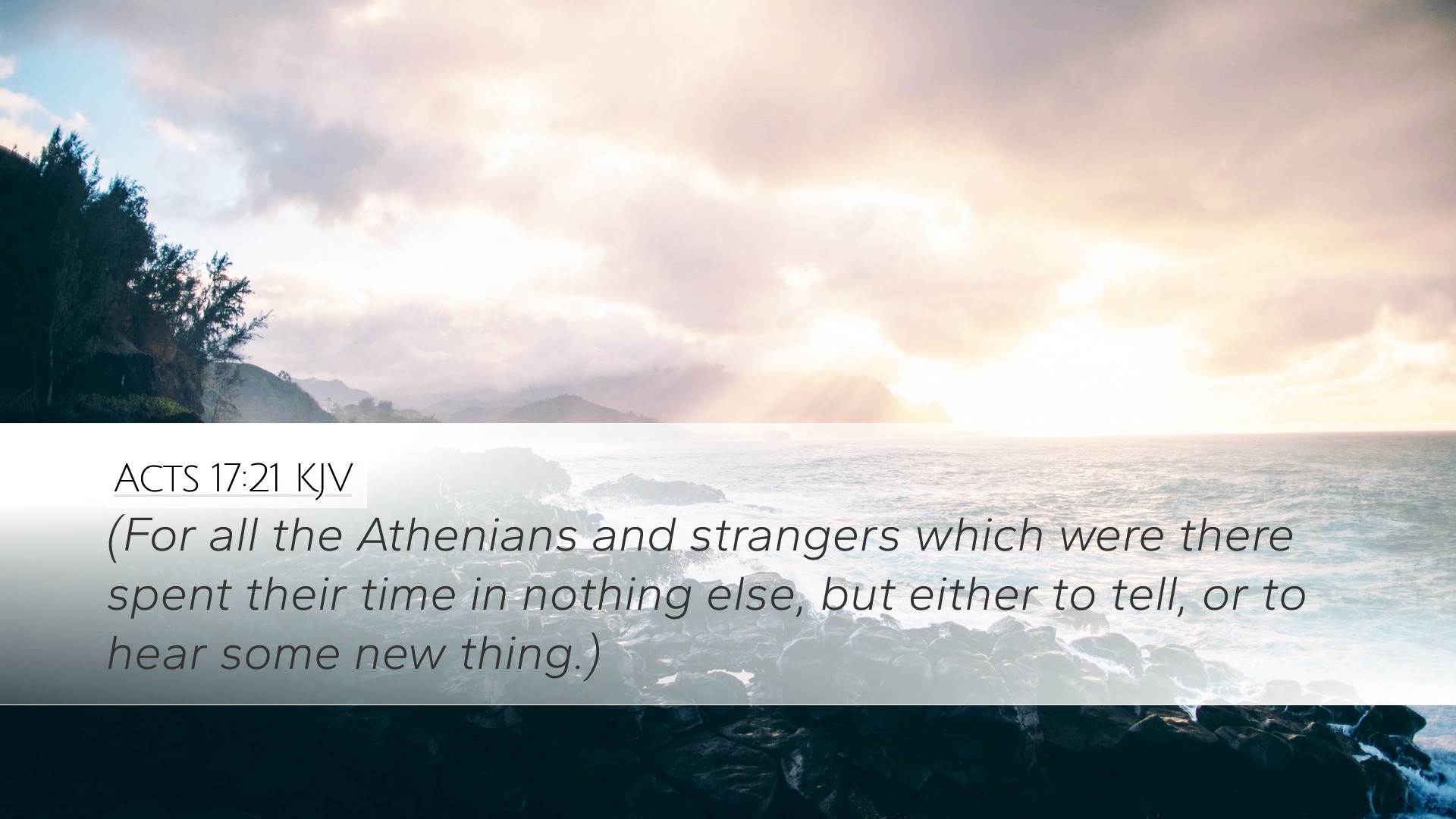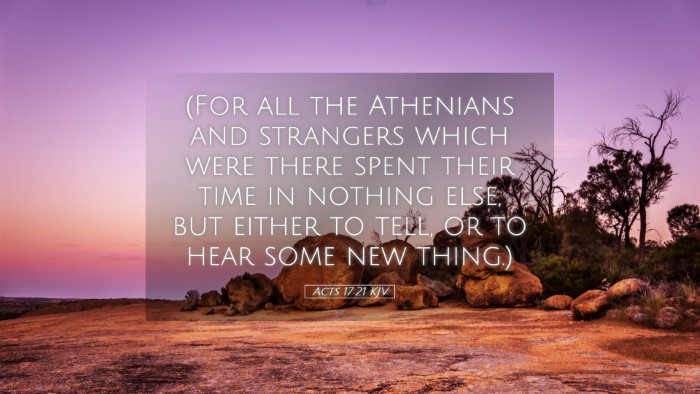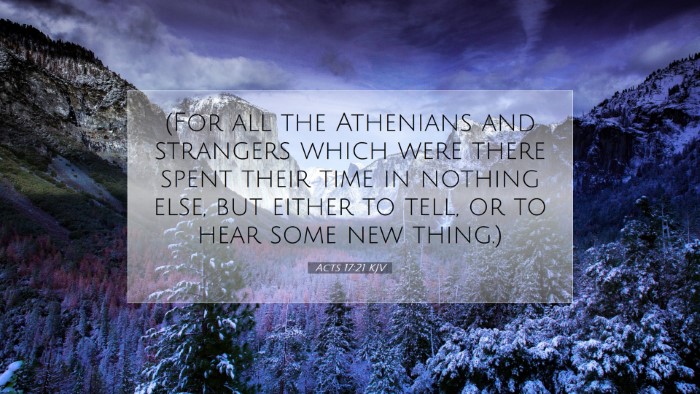Commentary on Acts 17:21
Bible Verse: "For all the Athenians and the foreigners who lived there spent their time in nothing except telling or hearing something new."
Introduction
The verse under consideration, Acts 17:21, serves as a pivotal observation about the cultural context of Athens during the time of the Apostle Paul. In the context of Paul's missionary journey, this verse encapsulates the intellectual and philosophical climate of ancient Athens—a city revered for its rich heritage of thought and discourse. This commentary draws upon insights from respected public domain commentators, such as Matthew Henry, Albert Barnes, and Adam Clarke, to provide a comprehensive understanding of this verse’s implications for contemporary Christians, theologians, and scholars.
Contextual Overview
Acts 17 records Paul's missionary efforts in Athens, where he encounters a city steeped in philosophy and idolatry. Verse 21 highlights the tendency of the Athenians towards a never-ending pursuit of novelty in their intellectual endeavors. This commentary will elucidate various aspects of this verse, including its cultural implications, theological insights, and practical applications.
Cultural Implications
Athenian Intellectualism
According to Matthew Henry, the Athenians exemplified a culture characterized by an insatiable quest for knowledge. The city was home to philosophers such as Socrates, Plato, and Aristotle, and had long been a center for learning and debate. Henry emphasizes that the phrase "spent their time in nothing except" reflects a lifestyle focused primarily on the acquisition of new ideas, often at the expense of practical wisdom and moral application.
Philosophical Curiosity
Albert Barnes notes the significance of the phrase "telling or hearing something new." This observation suggests a societal preoccupation with the latest philosophical trends and curiosities, often leading to superficial engagement with ideas rather than deep understanding. The reliance on novelty poses challenges for spiritual growth, as true wisdom is seldom found in the transient or fashionable.
Theological Insights
The Limitations of Human Wisdom
Adam Clarke points out that while the pursuit of knowledge is commendable, it is crucial to discern the ultimate source of wisdom—God. Clarke contends that the constant search for new ideas may lead to an emptiness that worldly wisdom cannot fill. In the context of Acts 17, this highlights the need for the transformative message of the Gospel, which offers something profoundly new yet eternally true.
Rejection of Foolishness
The verse indirectly critiques the folly of those who fail to recognize the divine amidst their intellectual pursuits. Henry argues that an emphasis on human wisdom can lead individuals away from God, making them vulnerable to the deceptions of false teachings and idolatries prevalent in Athenian society.
Practical Applications
Engaging with Culture
As modern-day believers, the challenge remains to engage thoughtfully with the culture around us. Barnes highlights the importance of recognizing the balance between engaging with contemporary ideas and remaining anchored in biblical truth. Pastors and theologians are called to discern the value of new ideas while firmly rooting their teachings in scripture.
Avoiding Spiritual Superficiality
In an age marked by rapid information turnover and constant novelty—much like the Athenians—there lies the temptation for Christians to be drawn away from foundational truths. Clarke encourages believers to seek depth rather than distraction, urging study and reflection on the word of God that surpasses the transient allure of contemporary trends.
Conclusion
Acts 17:21 serves as a crucial reminder of the pitfalls associated with the pursuit of novelty—an insight as relevant today as it was in the first century. By learning from the experiences of the Athenians and adhering to the wisdom found in scripture, pastors, students, theologians, and scholars can cultivate a faith grounded in timeless truths rather than fleeting fancies. This reflective engagement with the text challenges us to pursue knowledge that leads to understanding, humility, and a deeper relationship with God.


